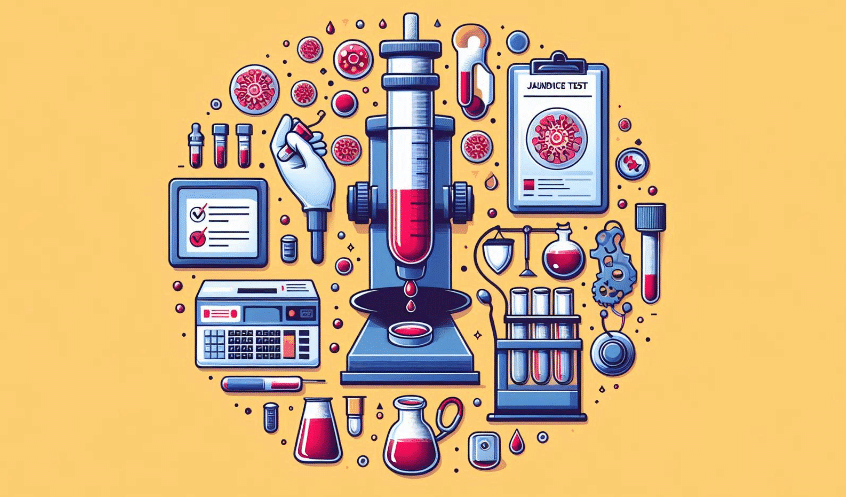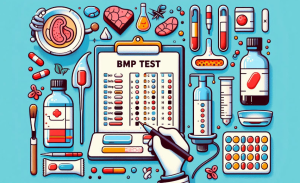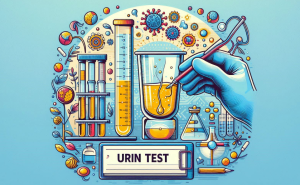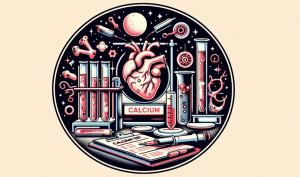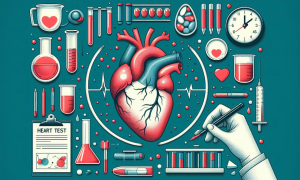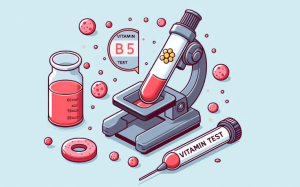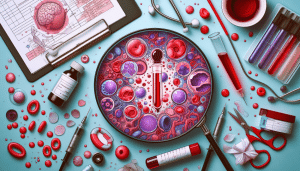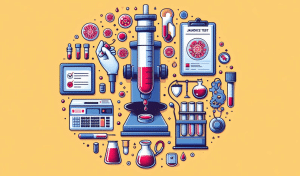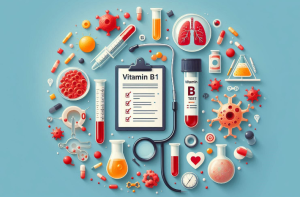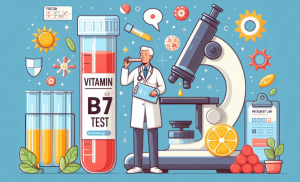What is a Jaundice Test/Bilirubin Test?
A jaundice test, also referred to as a bilirubin test, is a blood test that measures the levels of bilirubin in your blood. Bilirubin is a yellow pigment that is produced when red blood cells break down. Normally, the liver processes bilirubin and removes it from the body through bile. However, when bilirubin levels become elevated in the blood, it can cause jaundice, a condition where the skin, eyes, and mucous membranes turn yellow.
Why Do You Need a Jaundice Test/Bilirubin Test?
A doctor might order a jaundice test if you:
- Exhibit signs of jaundice: Yellowing of the skin, eyes, or mucous membranes.
- Have symptoms suggesting liver problems: Such as fatigue, abdominal pain, dark urine, or light-colored stools.
- Are at risk for liver disease: Due to factors like alcohol abuse, viral hepatitis, or certain medications.
- Have a newborn with jaundice: Newborn jaundice is common but sometimes requires monitoring and treatment.
What Does a Jaundice Test/Bilirubin Test Measure?
This test primarily measures the total bilirubin level in your blood, which includes:
- Direct bilirubin: The form of bilirubin that has been processed by the liver and is ready for excretion.
- Indirect bilirubin: The unprocessed form of bilirubin that is still being transported to the liver.
By evaluating these bilirubin levels, the test indirectly helps assess:
- Liver function: High levels of bilirubin can indicate liver damage or dysfunction.
- Red blood cell breakdown: Excessive breakdown of red blood cells can also lead to elevated bilirubin.
- Bile duct obstruction: Blockage of the bile ducts, which carry bile from the liver to the intestines, can also cause jaundice.
Preparing for the Test
Typically, no special preparation is needed for a jaundice test. However:
- Fasting: Some labs might require you to fast for a certain period before the test, particularly if other blood tests are being performed simultaneously. Confirm with your healthcare provider.
- Medications: Inform your doctor about any medications or supplements you are taking, as some might affect bilirubin levels.
Understanding the Results
Normal total bilirubin levels typically range from 0.3 to 1.9 mg/dL. However, the interpretation of results can vary based on the lab and your specific situation.
- High bilirubin levels (hyperbilirubinemia): Indicate jaundice and might suggest liver disease, bile duct obstruction, or excessive red blood cell breakdown.
- Normal levels: Generally indicate healthy liver function and normal bilirubin metabolism.
Risk Factors and Prevention
Various factors can increase your risk of developing jaundice:
- Liver diseases: Hepatitis, cirrhosis, and other liver conditions can impair bilirubin processing.
- Bile duct obstruction: Gallstones, tumors, or inflammation can block bile flow, leading to jaundice.
- Blood disorders: Certain blood disorders can cause excessive red blood cell breakdown and elevate bilirubin levels.
- Medications: Some medications can interfere with liver function or bilirubin metabolism.
- Newborn jaundice: Immature liver function in newborns can temporarily cause jaundice.
Prevention and management focus on addressing the underlying cause of jaundice:
- Treating liver diseases: If liver disease is diagnosed, treatment options will depend on the specific condition.
- Removing bile duct obstruction: If gallstones or other obstructions are causing jaundice, procedures might be necessary to remove them.
- Managing blood disorders: Appropriate treatment for any underlying blood disorders contributing to jaundice will be required.
- Medication adjustments: If medications are affecting bilirubin levels, your doctor might adjust the dosage or suggest alternatives.
Remember, timely diagnosis and treatment of the underlying cause of jaundice are crucial for preventing complications. Consult with your healthcare provider if you observe any symptoms of jaundice or have concerns about your liver health.

 7351982473
7351982473